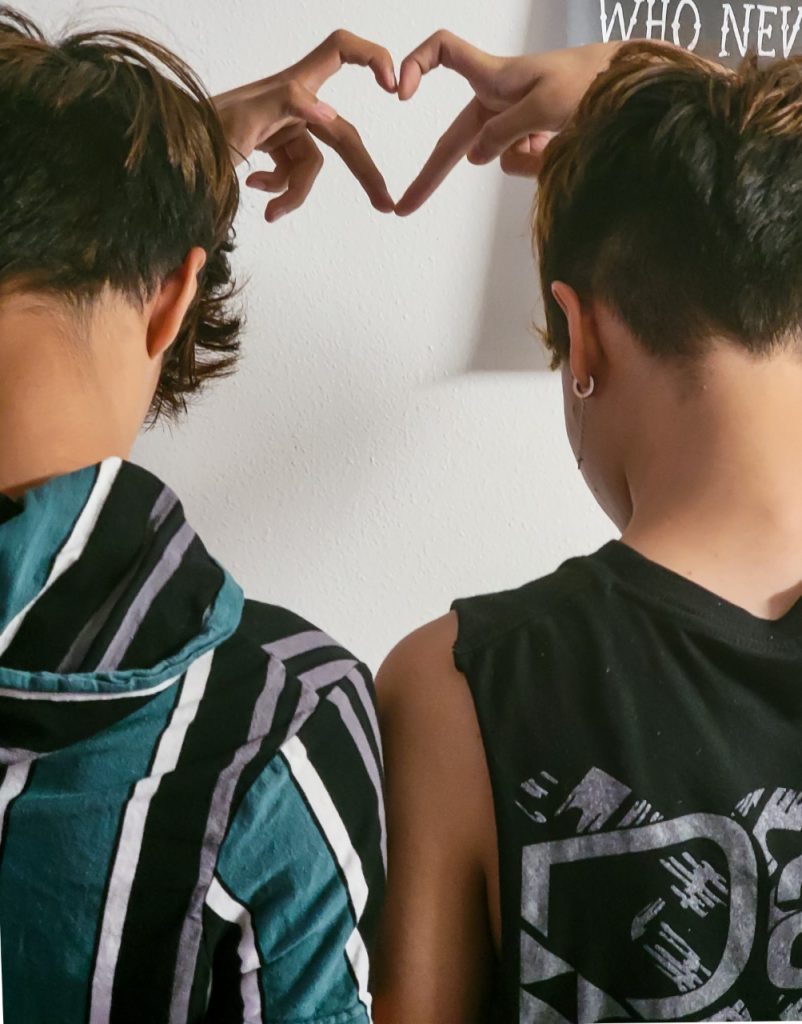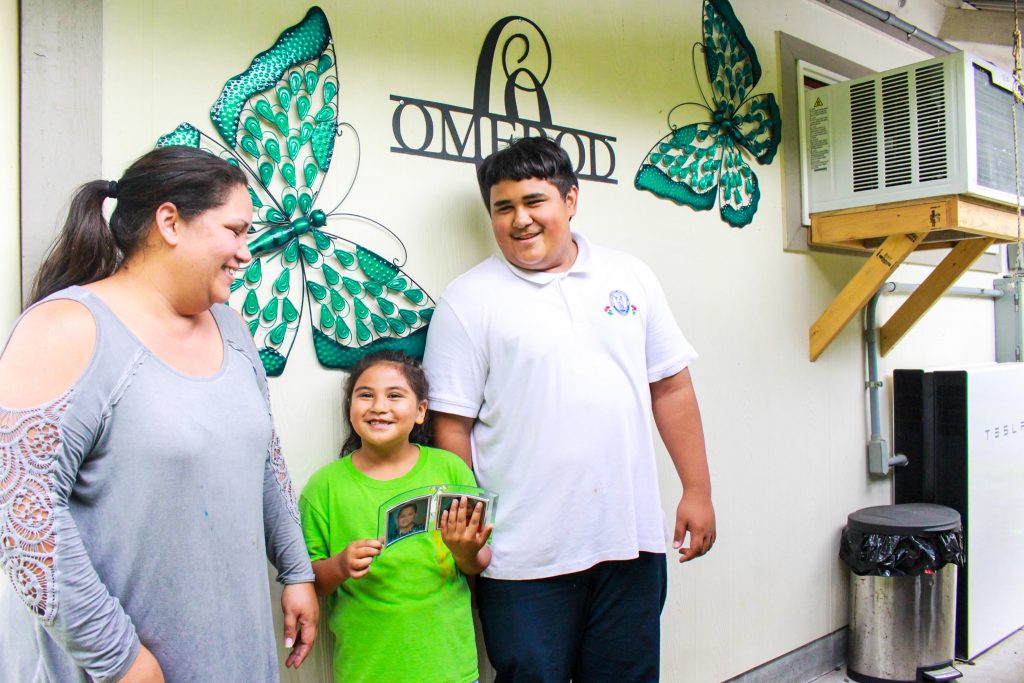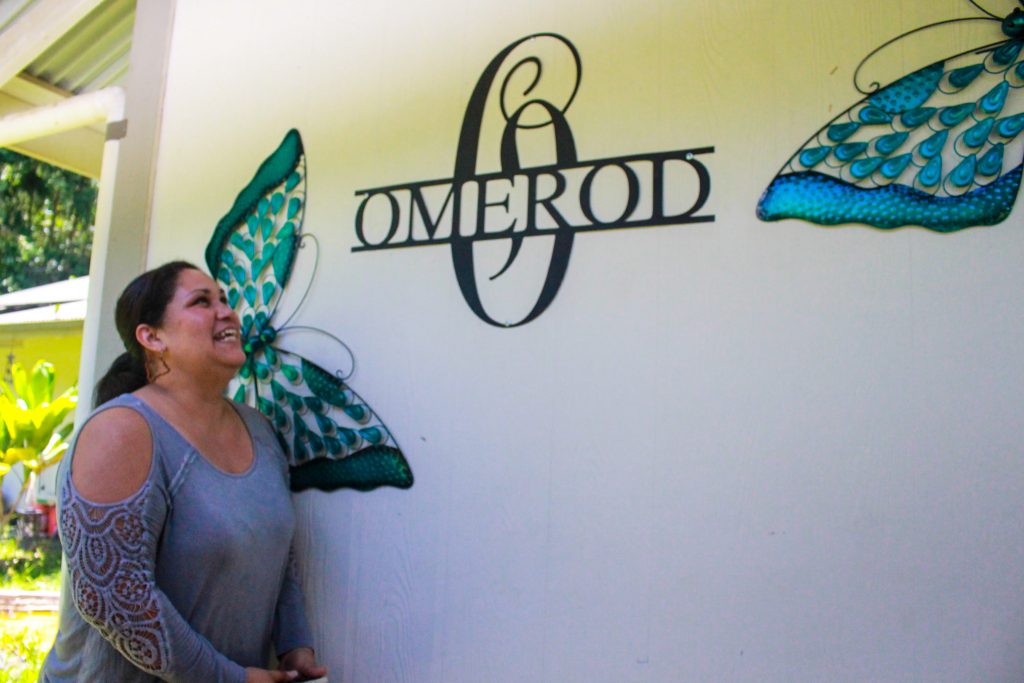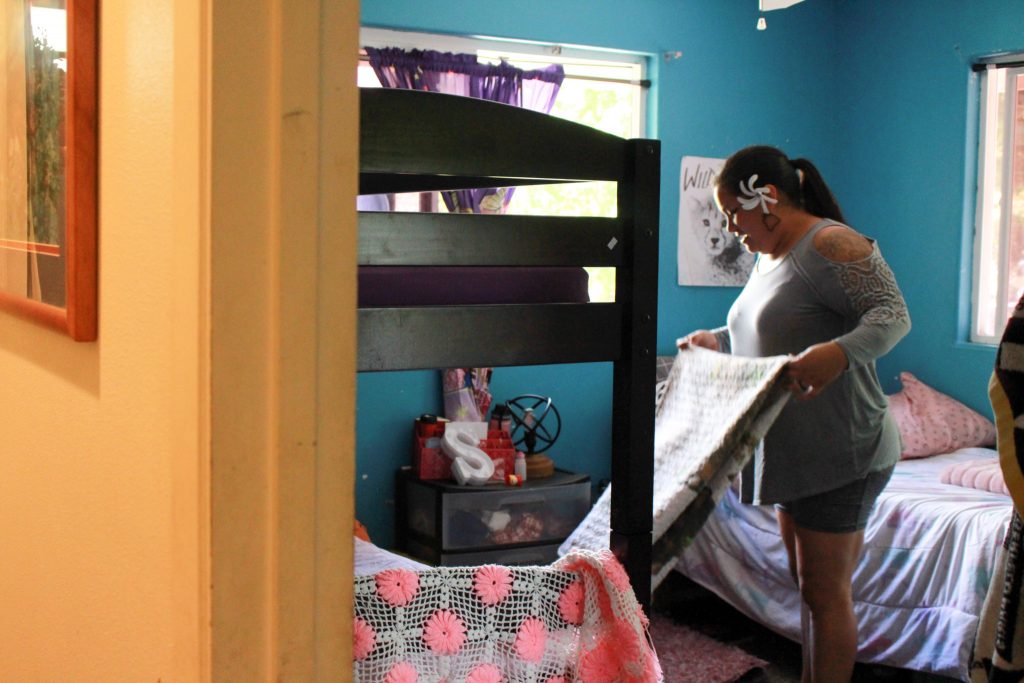Mother’s Day also celebrated by women who foster children needing a loving home

Just a few days before Mother’s Day, Michelle Omerod was sitting in her house in Kea’au, with candles lit in every room. She was taking in her moment of peace before her three children and five foster children would return from school.
“This is my quiet time,” she said.
But her mom duties are never ending. There is rice to make in an industrial-sized pot, daily loads of laundry to do, meals to cook and a full dishwasher to load and unload at least once a day.
With a household of children between the ages of 7 and 16, “there’s never a dull moment,” she said.
Years ago, while in highschool, Omerod saw many of her friends shuffle in and out of foster homes and was upset by the conditions they endured within the system.
When she and her husband Aaron bought their home in Keaʻau, they decided — despite having three children of their own — to become licensed resource caregivers, more commonly known as foster parents.
Since 2020, they have taken in more than 20 children and counting from East Hawaiʻi. Many of them are teenagers — and some have parents at the jail where Aaron Omerod works as a correctional officer.
The children arrive from different situations, including being abused, molested and abandoned.
“God knows it’s not easy,” she said.
There are the successes.
“Iʻve seen them overcome what they thought they could never do,” Michelle Omerod said. “You know a lot of them, they just were told their whole life they were worthless or something like that. So, when you come at them and tell them they can go to college, that they can do what they’ve always dreamed of doing, it’s rewarding.”
And there are the failures.
“There are some kids that I had to get removed,” she said. “There were some that I absolutely fell in love with, and they were like my own kids, but I knew there was nothing more that I could do to provide for them. And they still did what they wanted to do. It was unsafe for my family, so they had to be removed.”
The challenges also are financial, especially being able to feed everyone. The Omerods currently have five foster children, in addition to their own kids aged 7, 12 and 15.
The Hawaiʻi State Department of Human Services provides monthly stipends based on a child’s age. Foster parents receive $649 a month for kids ages 0-5; $742 a month for 6 to 11 year olds, and $776 for children 12 years and older. That amount increased following a federal class action lawsuit in 2013.
“It really isn’t a lot because despite what many people think, just because you’re in foster care or just because you have foster children doesn’t mean you get food stamps,” Michelle Omerod said. “Honestly, if you didn’t qualify for food stamps before you became a foster parent or without the foster kids, you will not get it.”
She hopes more can be done to support these kids, especially when it comes to birthdays and Christmas.
“If the state could give just a little bit more during Christmas, for instance, it will make a world of difference,” she said. “Bottom line: ‘We’re not doing it for the money’.”
Jackie Leedy and her husband Abe also are foster parents on the Big Island. For six years, they have cared for multiple special needs kids, and children with mental health issues. Some children have been with them for years.
With two acres, dogs, cats, a horse and plenty of space, Leedy said she and her husband had a safe space for children to heal.
“We knew it was good for kids,” she said. “And we knew they could thrive here, and that we could provide the love, nurturing and the stability they need.”
She said she’s had a great experience working with the local child protective services but at times it can be difficult to watch the children wait and suffer to find a permeant home.
“CPS workers are great,” she said. “The CPS workers really follow through and talk to you and tell you what the next step is and what’s expected.”
Leedy says she’s helped the children learn everything from routine to personal hygiene and focus on self-care during their stay with her.
“I try to help them with their self-esteem,” she said. “Often they come to us with no self-esteem. I want them to thrive, grow, learn and be better.”
At their house, “I tell them all that we are ʻohana,” she said.
May is National Foster Care Awareness Month. According to statistics from the Partners in Development Foundation, a nonprofit public charity that inspires and equips families and communities for success and service, there are approximately 1,200 children in foster care in the State of Hawaiʻi.
More than half of the incarcerated youth and adult population in Hawaiʻi have a Native Hawaiian or Pacific Islander background, many of which were involved in systems of foster care, child welfare, mental health services, special education or family court.
And nearly 300 of the youth in foster care are teenagers.
“Nobody wants to take on teens because of their ‘baggageʻ,” Omerod told the foundation. “But this is their last chance before they become an adult. This is our chance to make a difference before we see them on the other side of the bars.”
As a correctional officer, Aaron Omerod has seen incarcerated teenagers and is as passionate about trying to help their foster kids stay on track.
Alana Power, Project Director of the Partners In Development Foundation’s Project Pilina Program, said she hopes more families will be open to taking in troubling teens in the future.
“We are always so grateful when our program has the opportunity to work with general license applicants who become safe and loving homes for keiki in foster care,” she said. “Finding teen foster homes can be challenging and we acknowledge and honor the Omerod ‘ohana for answering the call and need in their East Hawai’i community.”
Project Pilina will offer a statewide virtual information session about how to become foster parents on June 7 at 12 p.m via Zoom. For more information, go to pidf.org/projectpilina.
For more information about foster care in Hawai’i, you can also go to: https://humanservices.hawaii.gov/ssd/home/child-welfare-services/foster-and-adoptive-care/.
















